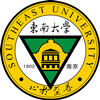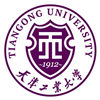��
��
Keynote Speakers
��
��

Prof. Wuqiang Yang
The University of Manchester
IEEE Distinguished Lecture
Professor Wuqiang Yang (Fellow, IEEE, FIET, FInstMC) has been working with The University of Manchester in the UK since 1991. His main research interests are electrical capacitance tomography (ECT), and touch sensors for robots. He has published more than 400 papers and two books with an h-index of 52. He received several national and international awards, including the 2021 IEEE IMS Best Application Award. He is an Associate Editor of IET Sci. Meas. and Technol. Currently, he is the Director of the Joint Research Laboratory of Touch Sensors for Domestic Robots at The University of Manchester.
��
Speech Title: "Capacitive Tactile Sensors for Robot Applications"
Abstract: "Tactile sensing is important for a robot to interact with the external environment.
Currently, most robots can handle a known object at specific location, but they are vulnerable to an unknown
object and/or unknown environment. Tactile sensors play an important role in interaction between a robot hand
and an unknown object because tactile sensors can provide necessary information on touch detection and for feedback control.
Among various tactile sensing techniques, capacitive sensors have gained popularity, due to their simple
structure, high sensitivity, low power consumption, quick response, wide dynamic range and low cost.
During my Lecture, I will start from the need of tactile sensors for robot applications, and review
existing tactile sensing technologies. Then, I will introduce the principle and implementation of a
type of capacitive tactile sensor, which can sense 3D force, and a dedicated design of a digital-analogue
hybrid chip, which contains a capacitance-to-digital converter (CDC), a 32-channel multiplexer,
an ARM microcontroller and a router, facilitating collaborative capacitance measurement across
multiple chips. I will describe applications of the capacitive tactile sensors and the developed
chip on robots with video demonstration, and also discuss other possible applications, including
implementation of artificial skin, intelligent functions for cars, elderly care, and the possibility
to develop a very low-cost electrical capacitance tomography (ECT) device."
��
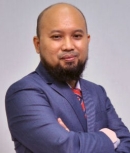
Prof. Hazlie Mokhlis
Universiti Malaya
Fellow of IET, h-index: 66
Hazlie Mokhlis received the Bachelor of Engineering degree and Master of Engineering Science in Electrical Engineering from Universiti Malaya in 1999 and 2003 respectively, and PhD degree from the University of Manchester in 2009. Currently, he is a Senior Professor and Executive Director of Photonic Research Centre, one of the national Higher Institution Centres of Excellence, under Ministry of Higher Education Malaysia. Hazlie is actively involved in research as a principal investigator in the area of Power & Energy Systems. He is the author and co-author of more than 300 publications with H-index of 50 in WoS. Up to now, he had supervised to completion more than 40 PhD, and more than 60 Master students. His outstanding research led him to be listed in the World��s Top 2% of Scientists by Stanford University 2021-2024. In 2021, he was awarded Top Research Scientist Malaysia (TRSM) by Academic Science Malaysia. Besides research, he is also active in consultancy projects with industries and in the development of Malaysian Standard related to Electrical power systems. Hazlie is a Professional Engineer in Malaysia and UK, Fellow IET, Fellow Academic Science Malaysia, senior member of IEEE and IEEE PES Distinguished Lecturer Program. He was chairman of IEEE Power Energy Society, Malaysia Chapter (2020-2022). His current research interest focuses on improving distribution system performance and its resiliency against extreme weather.
��
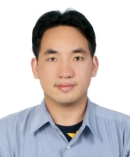
Assoc. Prof. Liang-Bi Chen
National Penghu University of Science and Technology
Liang-Bi Chen (Senior Member, IEEE) received a Ph.D. degree in electronic engineering from the Southern Taiwan University of Science and Technology, Tainan, Taiwan, in 2019. He was a Visiting Researcher with the National University of Singapore, Singapore, in 2008; the University of California at Irvine, Irvine, CA, USA, from 2008 to 2009; and Waseda University, Tokyo, Japan, in 2010. In 2012, he joined BXB Electronics Company Ltd., Kaohsiung, Taiwan. In 2016, he joined Southern Taiwan University of Science and Technology in Tainan, Taiwan, as an Assistant Research Fellow and a part-time Assistant Professor. In 2020, he joined the Department of Computer Science and Information Engineering at National Penghu University of Science and Technology, Penghu, Taiwan, as an Associate Professor and Chair. He received the 2021 Chester Sall Award (the Best Paper Award of IEEE Transactions on Consumer Electronics). He also received the 2020�C2021 Outstanding Associate Editor Award for IEEE Access. He has also served as a TPC member and an IPC member, and as a reviewer for many IEEE/ACM international conferences and journals. Since 2019, he has served as an Associate Editor for IEEE ACCESS, IEEE SENSORS JOURNAL, and IEEE TRANSACTIONS ON CONSUMER ELECTRONICS. Since 2022, he has served as the Chair of the IoT Technical Committee of the IEEE Consumer Technology Society.
����
��
Abstract: With the increasing impact of climate change and extreme marine conditions, traditional cage aquaculture faces significant uncertainty and management challenges. The integration of Artificial Intelligence and Internet of Things (AIoT) technologies is transforming aquaculture into a smarter and more resilient system. This talk presents the applications and future prospects of AIoT in smart aquaculture, focusing on key technologies such as water-quality sensing, fish behavior analysis, intelligent feeding control, and edge computing architectures. Through the fusion of AI algorithms and IoT sensing, real-time monitoring, predictive management, and energy-efficient operation can be achieved. Practical cases��such as the Penghu Smart Aquaculture Demonstration and AIoT Box system��will illustrate how to build an efficient and sustainable resilient marine farming system. Finally, the talk will address challenges in data governance, model reliability, and industrial deployment, outlining future directions for smart ocean farming.
��
��
Invited Speaker
��
��
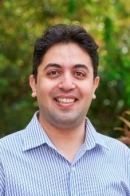
Assoc. Prof. Farhad Shahnia
Murdoch University, Australia
A/Professor Farhad Shahnia received his PhD in Electrical Engineering from Queensland University of Technology (QUT), Brisbane, in 2012. He is currently an A/Professor at Murdoch University. Before that, he was a Lecturer at Curtin University (2012-15), a research scholar at QUT (2008-11), and an R&D engineer at the Eastern Azarbayjan Electric Power Distribution Company, Iran (2005-08). He is currently a Fellow member of Engineers Australia, Senior Member of IEEE, and member of the Australasian Association for Engineering Education.Farhad��s research falls under Distribution networks, Microgrid and Smart grid concepts. He has authored one book and 11 book chapters and 250+ peer-reviewed scholarly articles in international conferences and journals, as well as being an editor of 6 books.Farhad is currently a Subject Editor, Deputy Subject Editor, and Associate Editor of several journals including IEEE Access, IET Generation, Transmission & Distribution, IET Renewable Power Generation, IET Smart Grid, IET Energy Conversion and Economics, and International Transaction on Electrical Energy Systems and has served 40+ conferences in various roles such as General, Technical, Program, Publication, Publicity, Award, Sponsorship, and Special Session Chairs. Farhad has led the IEEE Western Australia Section as the 2020-2021 Chair, and was the 2019 Founding Chair of the IEEE Western Australia Industrial Electronics Society (IES) Chapter. He was the 2023 Vice-chair of the IES��s Technical Committees on Smart Grids.
��
Speech Title: "��Microgrids and Virtual Power Plants: Requirements for Faster Uptake��
��
Abstract: Electricity systems around the world are experiencing a radical transition as the consequence of replacing fossil fuels, used for electricity production, by sustainable and cleaner energies. The growing penetration of renewable energies requires smarter techniques capable of handling the uncertainties of these intermittent sources. Along with this change, traditionally centralised power systems are also converting into distributed self-sufficient systems, often referred to as microgrids, that can operate independently. Virtual power plants are frameworks under which microgrids can be deployed within communities and enable energy transaction amongst retailers, customers and private investors. This talk will focus on the role of microgrids and virtual power plants in energy transition plans, and will discuss their benefits and challenges of microgrids and virtual power plants for effective energy transition. The talk will focus more on what initiatives need to be taken to advance their uptake.
��
��
��
Previous Keynote Speakers
��
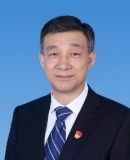 |
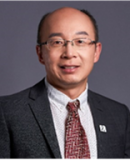 |
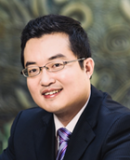 |
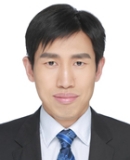 |
|
Lijun Xu Beihang University Fellow of IEEE and AAIA |
Xiao Wei Sun Southern University of Science and Technology Fellow of SID, OSA, SPIE, and IoP |
Rui Zhang The Chinese University of Hong Kong (Shenzhen) Fellow of IEEE and AES |
Weisheng Zhao Beihang University Fellow of IEEE |
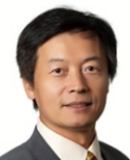 |
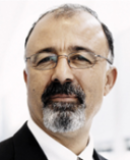 |
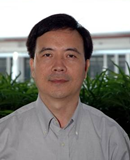 |
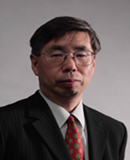 |
|
S. Joe Qin City University of Hong Kong Fellow of NAI, IFAC, AIChE, and IEEE |
Mohamad Sawan Westlake University Fellow of IEEE, CAE, and EIC |
Lihua Xie Nanyang Technological University Fellow of IEEE and IFAC |
Masahiro Fujita The University of Tokyo |
��
Previous Invited Speakers
��
��
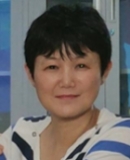 |
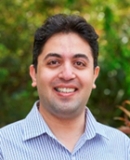 |
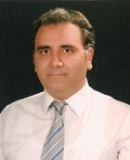 |
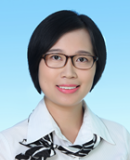 |
|
Weijie Dong Dalian University of Technology |
Farhad Shahnia Murdoch University |
Ahmet Mete Vural Gaziantep University |
Wu Zhou University of Shanghai for Science and Technology |
 |
 |
 |
 |
| Tayeb Mohammed Brahim Rennes University |
Nattha Jindapetch Prince of Songkla University |
Damian Chinedu Onwudiwe North-West University |
Mehmet Ertuğrul Karadeniz Technical University |
 |
 |
 |
 |
| Chen Jie Beihang University |
Fei Ma Beijing University of Chemical Technology |
Peng Xiao Capital Normal University |
Yanan You Beijing University of Posts and Telecommunications |
 |
 |
 |
 |
| Yan Huang Southeast University |
Bi Chong Institute of Microelectronics, CAS |
Lijun Zhu Institute of Semiconductors, CAS |
Jie Zhu Dalian University of Technology |
 |
 |
 |
 |
| Zhong Shi Tongji University |
Yanfeng Jiang Jiangnan University |
Mengmeng Yang Anhui University |
Hongxi Liu Truth Memory Corporation |
 |
 |
 |
 |
| Hao Wu Songshan Lake Materials Laboratory |
Meiyin Yang Institute of Microelectronics, CAS |
Xuegang Chen Anhui University |
Ming Liang Jin Qingdao University |
 |
 |
 |
 |
| Bin Fang Suzhou Institute of Nano-Tech and Nano-Bionics, CAS |
Yong Wu University of Science and Technology Beijing |
Ping Wang Tiangong University |
Junxue Li Southern University of Science and Technology |
 |
 |
 |
 |
| Shuyuan Shi Beihang University |
Yilin Wang Shandong University |
Bingfeng Miao Nanjing University |
Lingling Tao Harbin Institute of Technology |
 |
 |
 |
 |
| Shouzhong Peng Beihang University |
Wei Jiang Beijing Institute of Technology |
Guozhi Chai Lanzhou University |
Zhifeng Zhu ShanghaiTech University |
 |
 |
 |
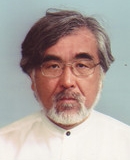 |
| Jinwu Wei University |
Zedong Xu Tiangong University |
Jie Zhang Beihang University |
Hirohide Haga Doshisha University |
��
��
��
��
��
��





